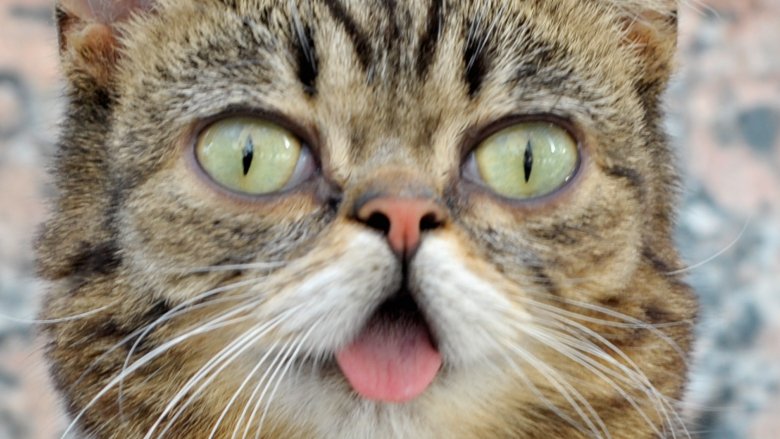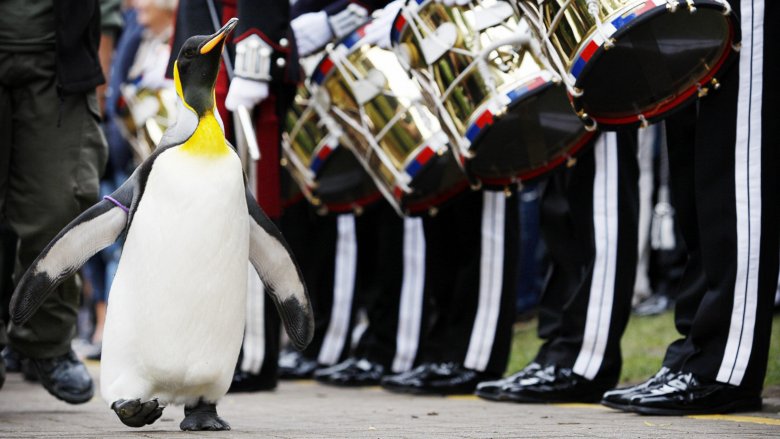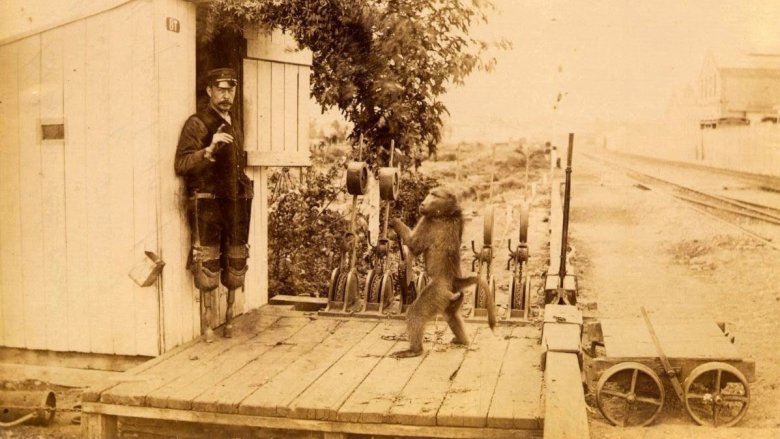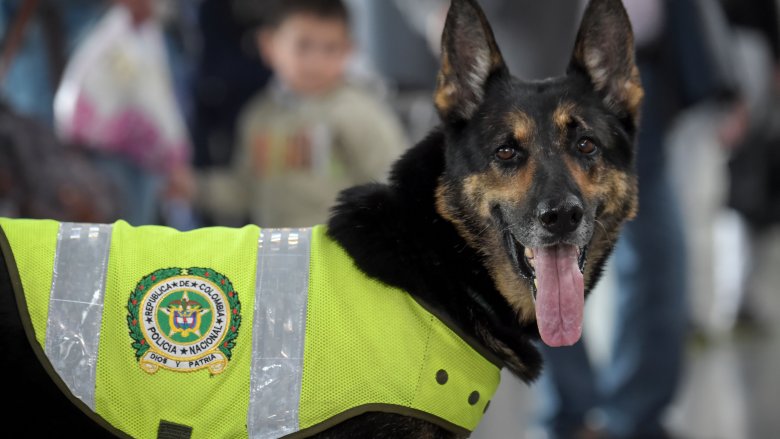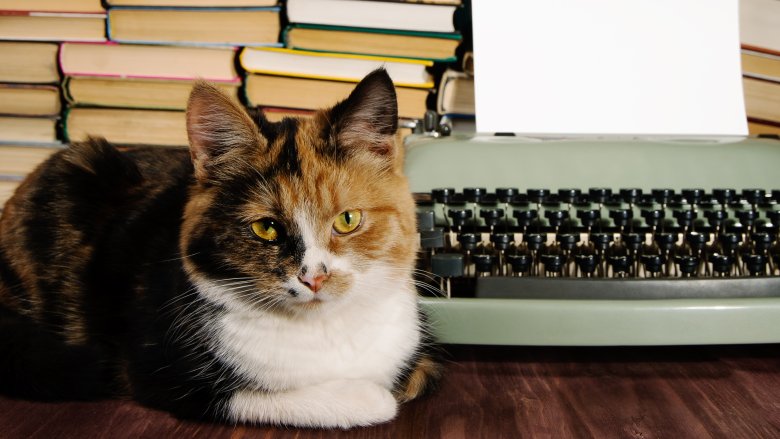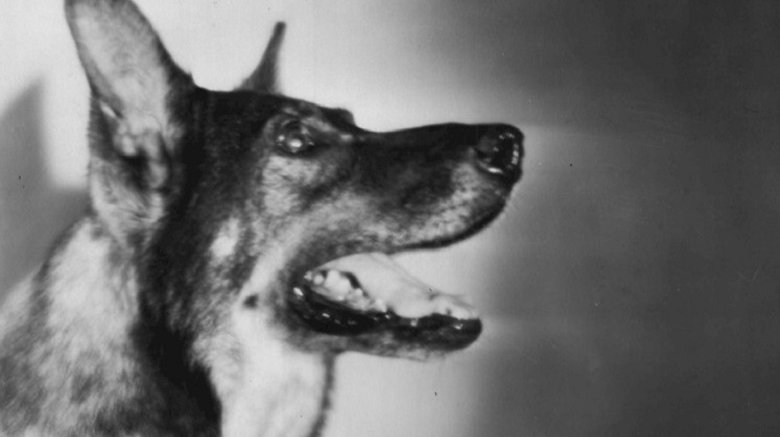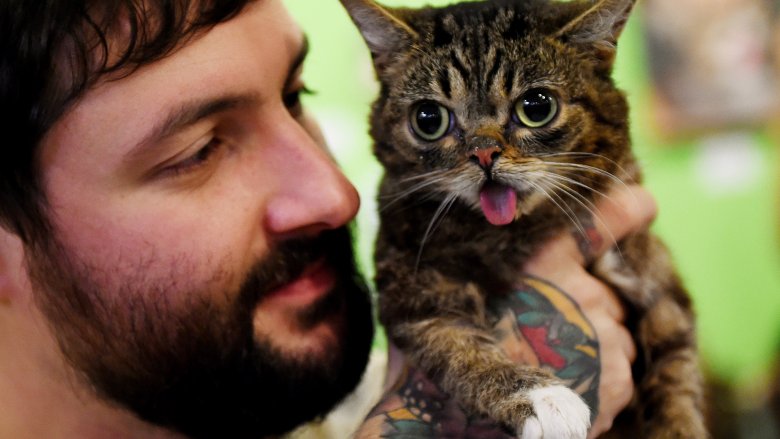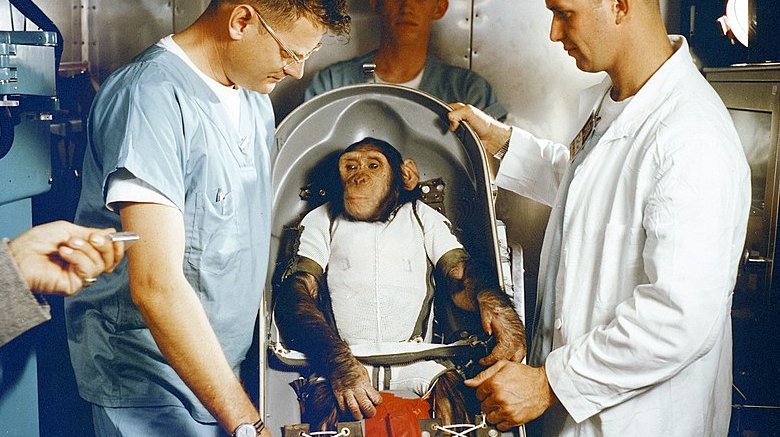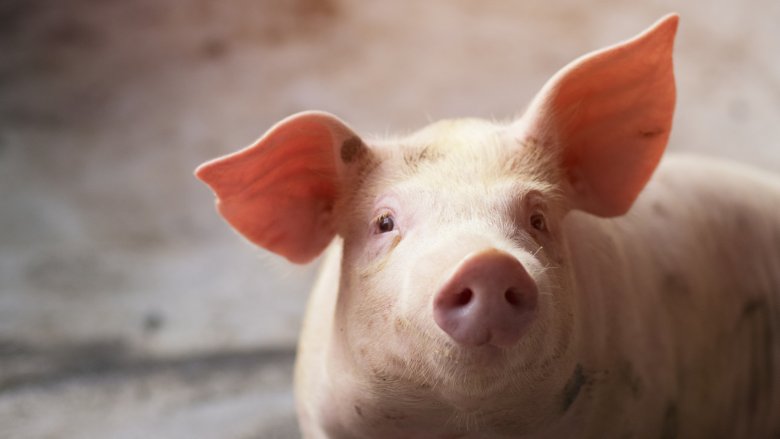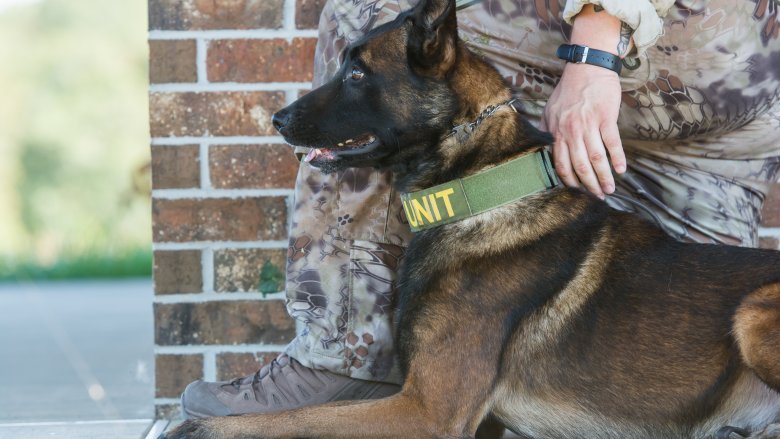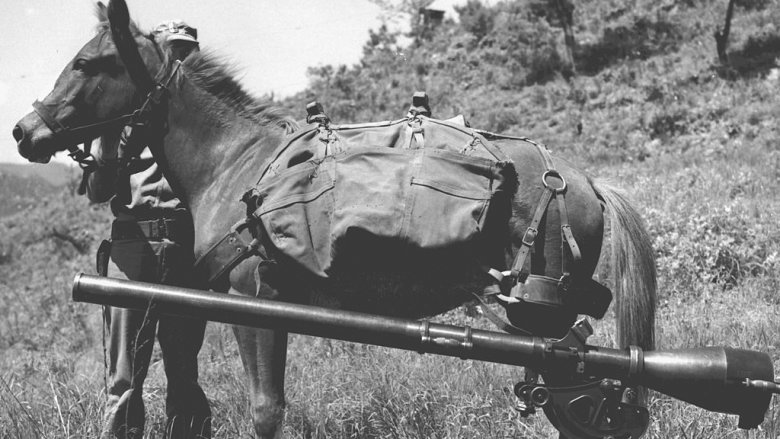Impressive Animals Who've Accomplished Amazing Things
All animals — regardless of shape or size — are awesome. But as the legendary author George Orwell might have said, some animals are more awesome than others. Sure, maybe your typical pet dog can do a few tricks, and some parrots can imitate speech. That's all well and good, but we're talking about pets and service creatures so exceptional that they've put people to shame with their amazing achievements.
Granted, some of these critters needed a bit of help from their human friends to reach such glorious heights, but other animals have accomplished mind-boggling feats all by themselves. We're talking about beasts that have ascended the ranks of political power, canines that have become international stars, and pack animals that have put their lives on the line to take care of their bipedal buddies. From our fine feathered friends and heroic primates to celebrity cats and scientific canines, these are all impressive animals who've accomplished amazing things.
This penguin was knighted
The world is full of emperor penguins, but only one penguin has ever received the title of knighthood. That honor goes to Nils Olav, a black and white bird from the Edinburgh Zoo. Olav's story starts in 1972, when he was adopted by the Norwegian King's Guard, a symbolic gesture between Norway and Scotland. Nils started off as a lance corporal, and every time the King's Guard visited the zoo, the penguin got a promotion.
Sadly, the original Nils passed away in 1987, so the Guard adopted a new penguin and gave him the name Nils Olav II. This little guy made it pretty far up the chain of command, and in 2008, 50 members of the King's Guard — with the approval of King Harald V himself — knighted the little bird, turning the colonel-in-chief into Sir Nils Olav II. This penguin even got to inspect the troops before receiving his knighthood. Sadly, Nils Olav II died shortly afterward and was replaced by a third bird who became brigadier in August 2016. If Olav keeps getting promoted, the king might find himself out of a job pretty soon.
A Welsh corgi got an honorary degree
Getting a PhD is no easy task, but before he died in 2013, Elvis the Welsh corgi was awarded an honorary doctorate. So how exactly does a cute dog earn such a big-deal degree? Well, it has a lot to do with his owner, Tim Pennings, an associate math professor at Hope College.
This Michigan professor was teaching a class one day on how to determine the quickest way to get from one point to another, and while drawing lines on his chalkboard, he explained that the shortest route isn't always the fastest. Later that day, Pennings was playing fetch with Elvis at Lake Michigan, tossing the ball into the water for his pup to bring back. As Elvis retrieved the ball, Pennings noticed something interesting. The shortest path to the ball was for Elvis to run directly into the water and swim at a diagonal path. But instead of taking this route, Elvis ran a little way down the beach, jumped into the water, and swam straight for the ball. Sure, it was technically a longer trip, but it allowed Elvis to fetch the ball in a much shorter time by swimming less.
As Pennings explained, it seemed his dog was inherently using calculus to get the ball as fast as possible. Intrigued, Pennings conducted the experiment multiple times, recording Elvis' speed and using a tape measure to determine the distance the corgi was covering. After plotting out all that info on a graph, it seemed to Pennings that Elvis had an instinctual knack for calculus. With his mathematical canine, Pennings was then easily able to explain this concept to students. The two gave multiple math lectures, and Elvis has even been featured in calculus textbooks. In other words, Elvis totally earned that doctorate.
This baboon worked as a railroad signalman
Generally speaking, monkeys shouldn't be involved with public transportation, but Jack the chacma baboon is an exception. In the 1880s, Jack was purchased by a South African dude named James Edin Wide. This guy worked as a railroad signalman, although he had a rough time getting around because he'd lost his legs in an accident. So Wide trained Jack to push him around in a trolley. He also taught his monkey pal to keep his house clean, but Jack's biggest accomplishment came when he figured out how to run an entire train station.
Whenever these old-timey trains approached, they'd start blowing their whistles, and the number of whistle blows indicated which track they needed to go down. Before Jack showed up, Wide had been the one changing the tracks, but the baboon quickly learned how to operate the levers. Soon, he was totally in charge of making sure the locomotives got where they needed to go. According to Mental Floss, railway managers even tested the little guy to see if it was safe to have a monkey manning the switches, and Jack passed with flying colors. As a result, Jack was paid 20 cents a day, plus half a bottle of beer each week. (Half a bottle because you don't want to give the monkey in charge of changing tracks a whole bottle of booze.) With those paychecks coming in, Jack worked as a signalmonkey for nearly decade before finally throwing his last lever in 1890.
This German shepherd is wanted by the cartel
Sombra is the very definition of a "good dog." Working with Colombia's counter-narcotics police, this German shepherd uses her super-powerful nose to catch crooks smuggling banned substances out of the country. And this 6-year-old pupper is incredibly successful at stopping bad guys. As of July 2018, she's discovered a whopping 9 tons of cocaine. She's also sniffed out 245 suspected drug runners, and needless to say, this has made her a hero with the country's police force.
On the other paw, Sombra (which means "shadow") isn't exactly the cartels' favorite canine. She's so good at her job that one of Colombia's most powerful gangs has put a bounty on her head. Known as the Urabeños, this gang has offered $70,000 to anyone who can kill Sombra. Fortunately, so far, the dog is safe and sound. The government has moved Sombra to a city outside the Urabeños' grasp, and in 2020, Sombra will get to retire from police work, hopefully having survived both gangsters and years of working like a dog.
A cat authored a physics paper (sort of)
For the most part, cats spend their time lounging around or murdering innocent animals. But Chester was no ordinary cat. In fact, this intellectual feline played an important part in the history of physics ... kind of.
The story starts in the 1970s, when physics professor Jack H. Hetherington wrote a paper called "Two-, Three-, and Four-Atom Exchange Effects in bcc 3 He." According to Atlas Obscura, the paper was about "the behavior of atoms at various temperatures," but when he was done writing the document — on a typewriter — he realized he'd made a big mistake. Even though he was the only one involved in the study, he'd used the words "we" and "us" multiple times in his paper.
So instead of rewriting the entire thing, he added an extra author: his cat, Chester. Hoping to make the feline sound more respectable, he gave his kitty the pen name of F.D.C. Willard. (Willard was in honor of the cat's dad, and F.D.C. was a combination of the scientific name for house cats — Felis domesticus — plus "Chester.") The paper was well-received, and in 1980, Chester "authored" a second paper in a French magazine, receiving sole credit for "his" work. It was an incredible moment for both physics and felines alike.
This dog became a Hollywood star
The Hollywood Walk of Fame honors some of the greatest icons in pop culture history ... and not all of them are people. Among all the human names, there's a star dedicated to Rin Tin Tin, a German shepherd who used to be an A-list actor. Known to friends as "Rinty," Rin Tin Tin belonged to a World War I veteran named Lee Duncan. We're not exactly sure how Duncan and Rinty first met, as the man told more than one story about the German shepherd's origin, but one tale asserts that Duncan found Rinty as a puppy on a battlefield in France.
Whether or not that's true, Duncan definitely trained Rinty to be an action star, and the canine got his first shot at glory in 1922, playing a wolf in The Man from Hell's River. Afterward, Rinty got more and more roles — starring in a grand total of 27 movies — and became a major movie star. He was a box office draw, and critics praised his amazing "acting abilities." In fact, it's said that Rin Tin Tin movies were so popular that they supposedly saved Warner Bros. from going under. And when the dog passed away in 1932, radio programs were interrupted with the tragic news. According to NPR, there was even an hour-long broadcast that played across the U.S. so Rin Tin Tin fans could say farewell to their favorite four-legged star.
These elephants formed their own orchestra
Forming bands and making music is generally considered a human endeavor, but in Thailand, there are a bunch of pachyderms playing some sweet tunes. The Thai Elephant Orchestra was founded by conservationist Richard Lair and neuroscientist David Sulzer (who goes under the stage name of Dave Soldier), and the elephants in question live at a conservation center in the northern part of the country. The center is home to domesticated elephants forced into retirement when the Thai government cracked down on logging, forcing the elephants' keepers to give them up. Needing money to keep the center afloat, Lair teamed up with Sulzer to teach the elephants how to play instruments, and this worked out well for Sulzer, too, as it gave him the opportunity to study the cognitive abilities of these magnificent beasts. Sulzer designed all sorts of gigantic instruments, from gongs and drums to a really big xylophone. One elephant even uses the harmonica. With Sulzer as the composer — and elephant handlers signaling the animals when to play — these creatures create music that reportedly reminds many Thai citizens of songs played at Buddhist temples. And the elephant orchestra is so successful that, believe it or not, they've created three albums.
This cat has raised a lot of cash for charity
Lil Bub's life got started on the wrong paw. This little cat was born with dwarfism, osteopetrosis, and four extra toes. According to her official website, her lower jaw is super short, and she doesn't have any teeth. As a result, her tongue constantly hangs out of her mouth. All this combined makes Lil Bub a "perma-kitten," meaning no matter how old she gets, she'll look like an adorable little kitten. But despite her ailments, Lil Bub has lived a pretty amazing life and has helped innumerable animals, all because she's so cute.
Lil Bub's owner is a man named Mike Bridavsky, and according to Wired, he started posting photos and videos of his unique-looking cat online in 2011. Soon, major news outlets were writing about Lil Bub, and Vice even produced an award-winning documentary on the kitty. After that, Lil Bub got her own book and an online web series where Whoopi Goldberg showed up as a guest. But her biggest contribution to society is teaming up with the ASPCA to create Lil Bub's Big Fund, a charity that's raised over $350,000 for special needs pets. And all that cash is thanks to Bub's incredibly cute face.
This chimp made space history
Before Alan Shepard or Yuri Gagarin left Earth behind, there was Ham the chimpanzee. Well, before he was known as Ham, NASA scientists called him "Number 65," as they worried there would be major backlash if a chimp with a cute name died in space. So our heroic chimp was originally known as Number 65, and despite the high stakes, he was the perfect candidate to represent primate kind. He was chosen out of 40 chimps, taught how to pull levers in conjunction with particular lights and sounds, and in January 1961, he was given an adorable spacesuit and fired into the atmosphere.
However, 65's flight into space was a bit bumpy. He was only supposed to go 115 miles into the air but actually traveled 42 miles higher. As a result, he felt way more G-force and experienced far more weightlessness than he'd been trained for. At one point, his capsule even lost pressure, but 65 survived it all and pulled those levers like a champ, giving scientists on Earth valuable data about human motor control in space. And when he returned to Earth, he was given the name Ham — an acronym for Holoman Aerospace Medical Center, where he was trained — and became a hero. He later retired to the National Zoo in Washington, and after passing away at the age of 26, he was buried at the New Mexico Museum of Space History with a plaque commemorating his incredible life.
A pig was nominated for president
From George Washington to Donald Trump, every U.S. president has had one thing in common: They've all been human beings. But in 1968, there was a moment where the commander-in-chief could've been a four-legged farm animal, thanks to the Youth International Party, aka the Yippies. The Yippies were a countercultural group who used bizarre stunts to draw media attention to their causes. For example, during an anti-war march at the Pentagon, they "attempted" to exorcise and levitate the five-sided structure. And in '68, these guys decided to protest the upcoming presidential election by staging an event outside the Chicago Democratic Convention.
It was during this protest that the Yippies unveiled their nomination for the presidency: a local porker by the name of Pigasus. Yippie leaders found the fine swine at a farm around Libertyville, Illinois, and at their event, they brought Pigasus out on stage with a leash. However, the little guy's campaign didn't last long. The police quickly broke up at the rally, and according to the Chicago Tribune, several Yippie leaders were arrested for what was "basically cruelty to an animal." As for Pigasus, he was carted away by the cops and handed over to animal control, his dreams of the Oval Office dashed for good.
A dog helped capture Osama bin Laden
The Belgian Malinois is not a dog you want to mess with. Resembling German shepherds, these intimidating canines are used by the military and the Secret Service to guard prominent figures and bring down bad guys. So when it came time for SEAL Team Six to fly into Pakistan and get Osama bin Laden, they brought along a Belgian Malinois named Cairo.
According to the Washington Post, this deadly dog was equipped with all sorts of high-tech gear, like a Kevlar vest and night vision goggles. When the team landed outside bin Laden's compound, Cairo and a few SEALs set up a perimeter where the dog stood lookout, watching for anyone who got too close or anyone escaping the al-Qaeda leader's compound. On top of that, if things got really desperate, the SEALs would use Cairo to smell for bombs or sniff out bin Laden himself.
Obviously, Cairo's terrorist-tracking nose wasn't necessary, but the dog did keep the SEALs safe. And when President Obama later congratulated the men on their successful mission, he made a point to meet with Cairo and give the good boy a presidential pat.
This horse was a Korean War hero
When most people picture a Marine sergeant, they generally picture someone with a high and tight haircut, a foul mouth, and a bad temper. But Staff Sergeant Reckless got along well with the rest of her platoon, never dropped any obscenities, and had a mane and four legs. See, Reckless was a Korean-born horse, and in 1952, a Marine lieutenant bought her for $250 from a kid who needed the cash to buy his crippled sister an artificial leg.
Once Reckless joined the military, she quickly became a favorite among her fellow Marines, especially thanks to her crazy appetite. She'd scarf down anything from scrambled eggs and pancakes to soda and beer. But Reckless earned her place in history as a pack horse, carrying ammo to the Marines who operated recoilless rifles, guns that were so dangerous to operate that troops often described them as "reckless" rifles (thus the horse's name). And during the Battle for Outpost Vegas, Reckless made over 50 trips back and forth to these cannons, carrying nearly 400 rounds of ammo one way and injured Marines back the other.
In fact, Reckless was such an incredible horse that after she was shown the route back and forth a few times, she made multiple solo trips out to the men who needed ammo. And even though she was wounded in battle, Reckless never shirked her duty. Thanks to her bravery in Korea, Reckless earned two Purple Hearts and was promoted to staff sergeant. And according to CNN, when she passed away in 1968, this heroic horse was buried with full military honors.
